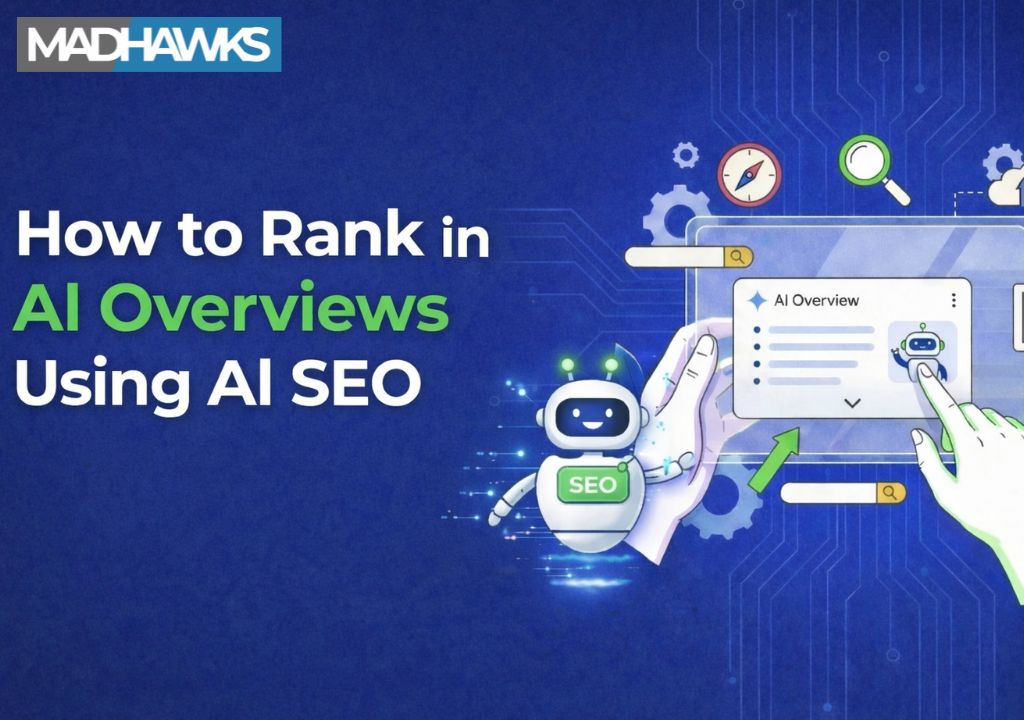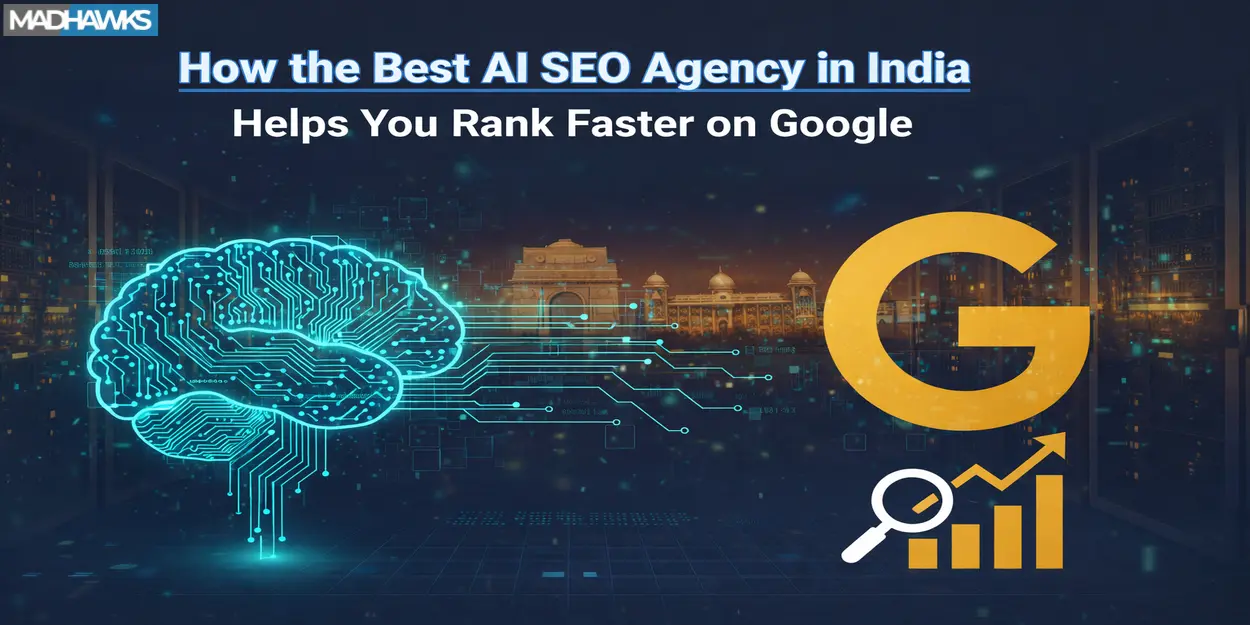In this digital era, we are very much dependent on Google and other search engines that we directly start by asking them whenever we have a query or doubt. While this has made information easily accessible for users, it has also opened many doors of opportunities for businesses. As per studies, Google users conduct over 3.5 billion searches every day. This makes Google and other search engines the biggest source of organic traffic. Over 49% of marketers believe that organic search is the highest ROI channel. And SEO plays a crucial role in all this.
SEO, which stands for Search Engine Optimization, is one of the strongest pillars of digital marketing. Here, S i.e. Search is what people do to find an answer to their query online. SE, i.e. Search Engine is the place where this search is made. SEO i.e. Search Engine Optimization is what you do to make your website appear in search results. We will understand this in further detail below:
What is SEO?
SEO (Search Engine Optimization) is the process of optimizing your website to rank higher on search engines. In simple words, it is the process of improving your website’s visibility on search engines like Google by incorporating relevant strategies.
For businesses, the goal is to make their content appear on the top of SERPs (Search Engine Result Pages) whenever people search for the products/services they offer or information that they have deep expertise in. A well-planned SEO strategy can help businesses turn their website visitors into paying customers or audiences that keep coming back to the website for related information.
SEO optimization strategies typically involve on-page and off-page strategies, which further include keyword research, content creation, content optimization, technical optimization, link-building, etc. SEO strategies do not just take place on-site but also involve off-site activities. Based on the same, SEO can be divided into different categories.
Types of Search Engine Optimization
Search Engine Optimization (SEO) can be majorly divided into three categories as listed below:
- On-Page SEO: Strategies to optimize website content for search engines and target users.
- Off-Page SEO: Doing things out of the website that ultimately improve brand awareness and drive traffic to the website.
- Technical SEO: It is the process of optimizing the technical elements of a website to improve user experience.
A comprehensive SEO strategy that involves on-page optimization, off-page best practices, and technical optimization is most likely to be successful. Let us understand these elements of SEO in more detail.
1. On-Page SEO
As mentioned earlier, on-page SEO refers to the optimization of content on a website page. Improving the quality and structure of content on a page, and incorporating keywords, HTML tags, etc, are all parts of on-page SEO optimization.
The content of a website needs to be optimized for search engines as well as the target audience. Keeping only one of them (search engines and people) can be a bad idea. You need to include elements that people are looking for as well as what search engines expect to see. This can be done by understanding what your target audience is searching for and generating content as per the guidelines provided by Google.
Optimizing for People: To optimize your website content for people, you need to ensure that it covers a relevant topic around a keyword that your target audience is searching for. The content should be unique, easy to understand, free from grammatical errors, updated, and must contain accurate information. Also, one important thing to ensure is that the content is better than your competitors.
Optimizing for Search Engines: To optimize it for search engines, make sure that the content has relevant title tags, meta descriptions, image alt texts, headings, and subheadings. Also, the content needs to have keywords, but keyword stuffing should be strictly avoided.
2. Off-Page SEO
Off-page SEO involves indirect strategies to attract and engage people on your website. These are the activities that are not directly related to the optimization of your website but contribute to SEO success. One of the most important off-page activities is link building. Link building is the process of acquiring backlinks from other websites. When different websites contain links pointing to your website, your website is considered more authoritative by search engines as well as people.
When building links for your website, keep in mind that quality matters more than quantity. Some common ways to strengthen your link-building efforts include brand marketing, brand building, PR, content marketing, listing management, social media marketing, and engagement with customer reviews.
3. Technical Optimization
Technical optimization, which is a self-explanatory term, refers to optimizing the technical elements of a website. Technical SEO matters as much as on-page and off-page optimization when it comes to the overall SEO success of a website. The architecture of a website is where the technical SEO starts. A website should be very well-structured so that it can be easily crawled and indexed by search engines.
To make technical optimization work for your site, you need to ensure that your pages are easily discoverable and accessible by search engines. Elements like URL structure, internal linking, navigation, etc, matter a lot when it comes to technical SEO. Also, make sure that you pay attention to user experience. Elements like core web vitals, mobile friendliness, HTTPS, and usability of your website help you understand user experience.
Importance of SEO
The most significant and obvious reason why SEO is important is that it helps you make your website content appear on search engine results pages. However, there are various other considerable reasons that make SEO important for businesses.
Google users conduct billions of searches every day, which makes Google or other search engines the major source of traffic to a website. But in order to attract maximum traffic from search engines, you need to ensure that your website content is well-optimized for relevant keywords.
SERPs refer to Search Engine Result Pages, which are the pages that a user sees after entering a query on search engines like Google. Most Google users stay on the first page of results to find the answer to their query. As per research, 75% of them are most likely to click on the first or the second link on the first page. This is why ranking high on search engines is crucial for a website in order to gain organic traffic.
And the best way to be visible on search engines is to perform good SEO on a website. Search engines are highly competitive and filled with different SERP features, such as Paid ads, featured snippets, carousels, ‘people also ask for’ sections, etc. Without a well-structured SEO strategy, ranking on the first page of search results can be quite difficult. Another significant reason to invest some time and effort into SEO is that it is the most cost-effective way to make your website stand out on a long-term basis.
How is SEO Different from SEM and PPC?
In the digital marketing landscape, you will hear two more terms very often. These terms are SEM (Search Engine Marketing) and PPC (Pay Per Click). While these are also subsets of digital marketing, they are very different from SEO. Let us understand these terms and if they are related to SEO:
SEO vs SEM
SEM (Search Engine Marketing), also known as Search Marketing, is an umbrella term that is used for combined SEO and PPC efforts. In simple words, it is a combination of organic and paid strategies used to drive traffic to a website via search engines. SEO refers to the process of driving organic traffic whereas SEM is the process of driving organic and paid traffic to a website. Many people use the term ‘SEM’ interchangeably with SEO or PPC. But in order to excel in the field of digital marketing, you must understand all three terms are related but different.
SEO vs PPC
Talking about PPC (Pay Per Click), it is the process of driving paid traffic to a website. Marketers have to pay for every click they get on their ads. SEO and PPC are two different strategies but can be considered the two sides of the same coin, which is search marketing. Many brands often look at search marketing as SEO vs PPC. But this is now how it should be done. A comprehensive search marketing strategy should involve both SEO and PPC.
How Does SEO Work?
How do search engines determine which pages to rank on top when users search for a particular query? Search engines like Google take into account multiple factors to assign rankings to web pages. Complex processes known as search algorithms are used by search engines. No one completely knows how search algorithms work and you don’t even need to know that. Just understanding some basics will suffice.
You must be aware of the basic process of how SEO works. Looking on a large scale, SEO majorly works through a combination of people, processes, and technology. Let us dive deeper into these processes:
1. The Working of Search Engines
To make people find your web pages via search, you need to understand how search engines work. This will help you ensure that you are following the right strategies and optimizing the technical elements of your website correctly. In traditional search engines like Google, there are four major stages of search:
Crawling: Search engines use crawlers to discover web pages by using sitemaps and following links.
Rendering: After crawling, search engines generate codes to see how the web page will look using JavaScript, HTML, and CSS.
Indexing: After discovering web pages, search engines analyze their content and add them to the database. A webpage that is not indexed will not be visible in search results.
Ranking: Search engines then use complex algorithms to determine whether a web page’s content is relevant to show up when users search for a relevant query or not.
2. Research
In order to make your SEO strategy work in your favor, you must conduct research about a few things. Researching is a crucial step in SEO. The first thing here is audience research. You must have a clear idea about who your target audience is and what are they searching for. Then comes keyword research where you need to identify relevant search terms that your audience is searching for and incorporate these terms into your pages. Apart from this, you need to conduct research about competitors and SERP analysis to stand out in your industry.
3. Planning
SEO is all about long-term goals. You need to specify goals that you intend to achieve and set strategies on how to achieve them. With constantly evolving technologies, your path and strategies may change but the end goal should remain the same. This step, i.e. planning, involves defining meaningful KPIs and metrics to measure your SEO success, creating projects and deciding how they will be implemented, setting a budget, choosing the right set of tools, and documenting the strategy.
4. Creation and Implementation
Once you have done all the research and made a plan, you need to proceed further with content creation. Now that you have the right keywords, you can start creating high-quality content around them. If your website already has relevant content, you can improve it by adding the latest information, adding internal links, or incorporating relevant keywords into it. If there are web pages that are not ranking well and have poor-quality content, you can consider removing them. The quality of content also plays a crucial role in SEO.
5. Monitoring, Maintaining, and Analyzing
Monitoring your website on a regular basis is very important to ensure that you are aware whenever there is an issue with your website. As soon as something breaks, try to fix it in order to avoid ranking impacts. If there are sudden traffic drops to a webpage, try to identify the underlying issues and fix them as soon as possible. To analyze how well your SEO strategies are working, you can use tools like Google Search Console and analyze these reports thoroughly to understand if you need to improve.
Different Speciality Areas in SEO
Although SEO majorly works the same for every industry, the strategies and additional tactics may differ for different areas. Based on the same, SEO can be divided into multiple specializations. Some major SEO specialties include:
Enterprise SEO: This is a large-scale SEO and is one of the most widely used ones. This typically means working on a large website or multiple websites of a brand containing over a million pages. In simple words, enterprise SEO is the process of improving the search rankings of a large-scale website.
E-commerce SEO: In e-commerce SEO, some additional elements need to be taken care of. These additional elements include product pages, category pages, faceted navigation, product images, internal linking structures, schema, product reviews, etc.
Local SEO: Local SEO Company India is the process of optimizing a website’s content to appear on local search results. When people in a particular city search for ‘XYZ services around me,’ it’s local SEO that makes businesses appear in the search results.
International SEO: International or global SEO is targeted at a global audience. It involves doing SEO for multiregional websites or optimizing for international search engines.
News SEO: News SEO refers to SEO strategies that are aimed at making website content appear in places such as Google News, Google Top Stories, Google Discover, etc.
Building an Effective SEO Strategy With MadHawks
A well-planned SEO strategy can make your business reach heights. But for that, you must understand how search engines work and how you can optimize your website content to rank high on SERPs. We hope that this guide was helpful for you to understand the basics of SEO and how it works. If you are looking for an SEO agency with good experience in the field, MadHawks is a one-stop destination for all your needs. Our team of SEO professionals has expertise in conducting SEO keyword research and optimizing different types of websites for their respective target audiences. For more information, contact us today!
Also read this blog:– The Role of AI and Machine Learning in Google Ads Services
FAQs
Q. What are the main components of an effective SEO strategy in 2024?
A. An effective SEO strategy focuses on high-quality content, strong technical foundations, and trsuted backlinks. Combine these with user-intent, EEAT, and ongoing performance tracking to stay on track.
Q. How does technical SEO help improve website rankings?
A. Technical SEO helps your website rank better by making it easy for search engines to crawl, undersatnd, and index your pages. It helps with site load speed and clean structure with no technical errors, so that search engines can trust it more, leading to enhanced visibility and higher rankings.
Q. How can beginners use AI tools for SEO optimization?
A. Beginners can use SEO tools to simplify everyday tasks such as keyword research, content ideas, and general optimization suggestions. Tools like Google Search Console, Surfer, or Semrus AI assistants can help you create relevant content without needing any SEO experience.







